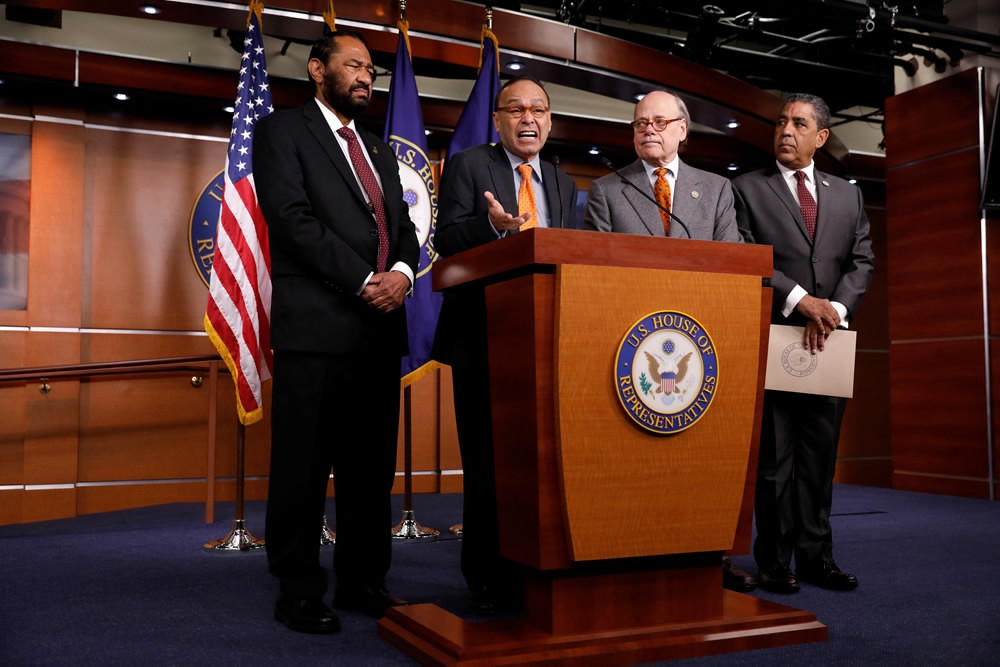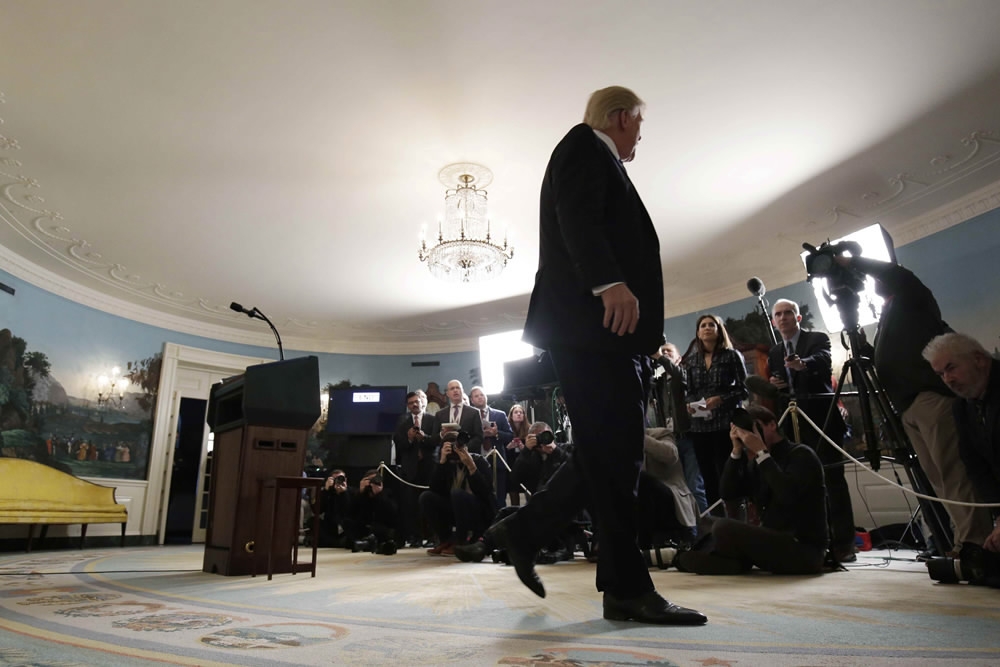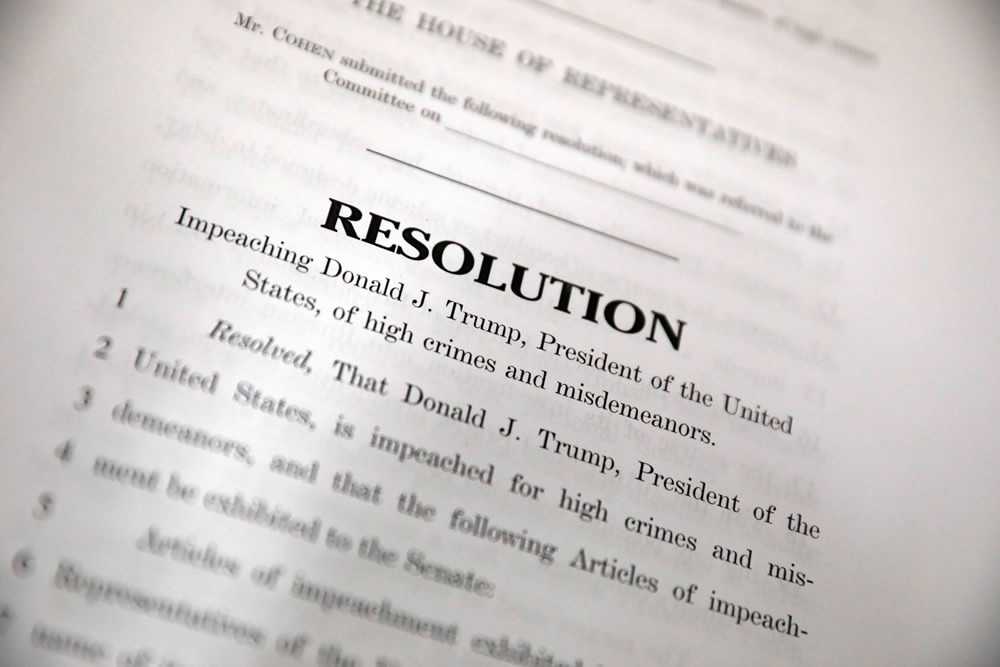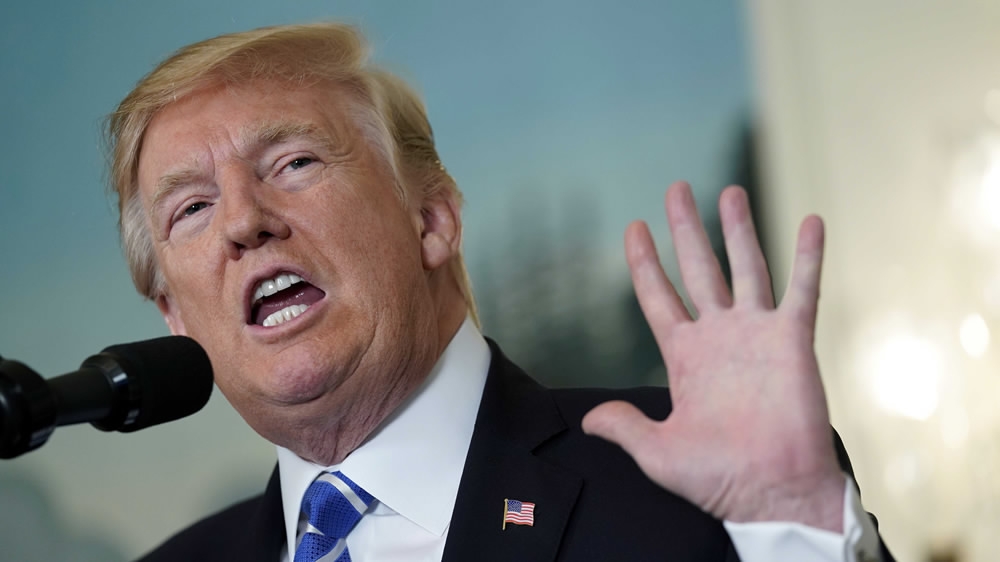Experts said the effort to impeach US President Donald Trump is likely to fall flat after a few US House Democrats made a push to discredit him on Wednesday.
They said most of the party would not support the move.
"House Democrats do not yet have a strong case for impeachment," Dan Mahaffee, senior vice president and director of policy at the Center for the Study of Congress and the Presidency, told Xinhua.
The move comes amid bitter partisan rivalry that has come to define Washington over the last decade or more.

Luis Gutierrez (L2), accompanied by Al Green (L1), Steve Cohen (R2) and Adriano Espaillat (R1), speaks at a press conference announcing articles of impeachment being filed against US President Donald Trump on Capitol Hill in Washington, US, November 15, 2017. /Reuters Photo
Luis Gutierrez (L2), accompanied by Al Green (L1), Steve Cohen (R2) and Adriano Espaillat (R1), speaks at a press conference announcing articles of impeachment being filed against US President Donald Trump on Capitol Hill in Washington, US, November 15, 2017. /Reuters Photo
Democratic Congressman Steve Cohen announced Wednesday that five other lawmakers in his party have signed a resolution that put out articles of impeachment against the billionaire-turned-president.
Those Democrats said the president had obstructed justice, violated the Constitution by profiting from his businesses as president and undermined freedom of the press, one of the major rights guaranteed in the Constitution.
"We're calling upon the House to begin impeachment hearings," Cohen said.
But experts said Trump has not broken any laws that would allow impeachment to go forth. The United States is a rule-of-law nation, and Congress cannot by law start the impeachment process simply because they do not like a sitting president.

US President Donald Trump departs after speaking about his recent trip to Asia in the Diplomatic Room of the White House in Washington, US, November 15, 2017. /Reuters Photo
US President Donald Trump departs after speaking about his recent trip to Asia in the Diplomatic Room of the White House in Washington, US, November 15, 2017. /Reuters Photo
Constitutionally, impeachment requires "treason, bribery, and other high crimes and misdemeanors," and is a process by which both the House and Senate try the president and vote to remove him from office, Mahaffee said.
In past cases, impeachment has come from the findings of special prosecutors' investigations or the motions of members of Congress, Mahaffee said.
Should an impeachment occur, it would work like this: The House Rules Committee and Judiciary Committee would determine the potential charges, and the full House of Representatives would move ahead to impeachment with a majority vote-similar to indictment in the legal sense-and the Senate would vote whether to remove the president from office with a two-thirds majority vote, Mahaffee said.
This all requires a significant and proven set of legal violations, rather than political disagreement, Mahaffee said, adding that Trump is unlikely to be impeached.

Articles of impeachment were filed against US President Donald Trump. /Reuters Photo
Articles of impeachment were filed against US President Donald Trump. /Reuters Photo
"This discussion is moot as long as Democrats remain in the minority in Congress – so it would be unlikely unless there were a significant reshaping of the Congress in the 2018 elections," Mahaffee said.
Brookings Institution Senior Fellow Darrell West told Xinhua that impeachment is a long and complicated process in the US, adding that the opposition party does not have the power to impeach and remove a president. It takes considerable bipartisanship to bring about that result.
Right now, the Democratic base believes Trump should be impeached and some Democratic legislators have endorsed that view, West noted.
"But the party leadership believes it is premature to push that right now. They know Republicans would not support that effort, West said.
"I doubt if anything meaningful on this topic will happen in the next few months. But as we head into the 2018 election, it certainly will be a topic that will receive a lot of attention from voters and candidates," West said.

Supporters of Republican presidential nominee Donald Trump celebrate after Trump was declared as the winner of the US election in Greenwood Village, Colorado, US, November 8, 2016. /Xinhua Photo
Supporters of Republican presidential nominee Donald Trump celebrate after Trump was declared as the winner of the US election in Greenwood Village, Colorado, US, November 8, 2016. /Xinhua Photo
"If Democrats happen to gain control of the House and Senate, there could be a serious impeachment effort in 2019. But even then, the Senate will require a substantial number of Republicans to support an effort to remove the president from office," West said, referring to the two-thirds majority vote needed to impeach.
Aside from the lawmakers who on Wednesday called for impeachment hearings, the party's leadership is not on board, at least for now.
House Minority Leader Nancy Pelosi earlier this month said impeachment is not a road the party should follow if Democrats expect to win back control of Congress in next year's Congressional elections.
"It's not someplace I think we should go," she said.
Source(s): Xinhua News Agency






